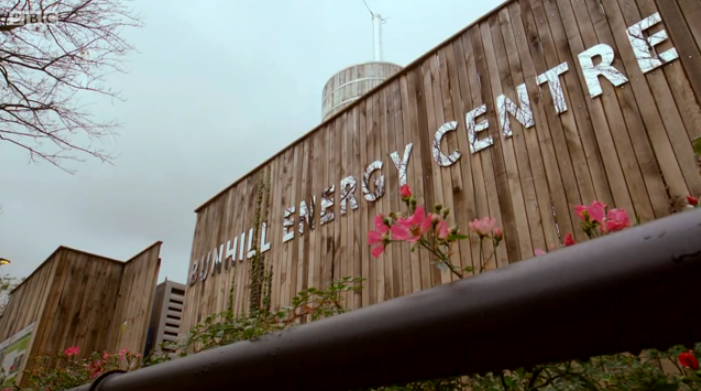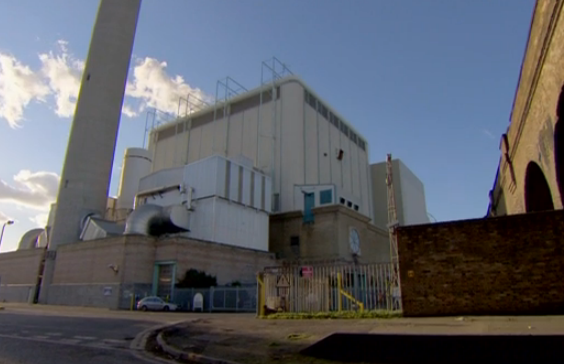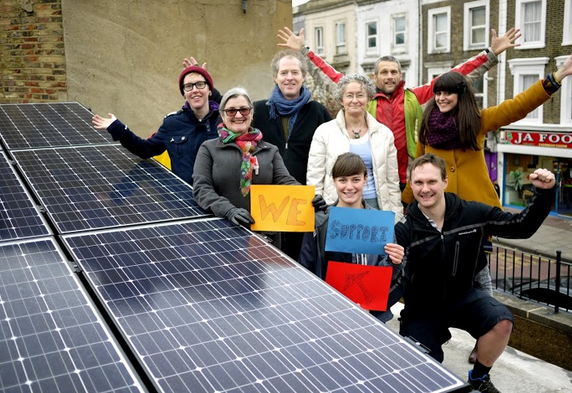Site search:
-
What’s new?
Energy for London Tags
Brent Buildings Camden Carbon Emissions CHP Cities Climate Adaptation Community Heating Community Initiatives Croydon Data DECC Decentralised Energy Distribution ECO Energy Costs Energy Efficiency Enfield FIT Fuel Poverty Funding Green Deal Hackney Haringey Housing Islington Lambeth Library Local Authorities Mayor Newham Ofgem Olympics Photovoltaics Planning RE:FIT RE:NEW Renewable Energy Retrofit Southwark Tower Hamlets Transport Waltham Forest Waste WestminsterEnergy Archives:
- February 2021 (1)
- January 2021 (15)
- December 2020 (15)
- November 2020 (9)
- October 2020 (3)
- August 2020 (5)
- July 2020 (3)
- June 2020 (4)
- April 2020 (10)
- March 2020 (5)
- February 2020 (2)
- January 2020 (3)
- October 2019 (1)
- September 2019 (4)
- August 2019 (2)
- July 2019 (1)
- August 2018 (1)
- November 2016 (8)
- October 2016 (8)
- September 2016 (2)
- August 2016 (8)
- July 2016 (14)
- April 2016 (12)
- March 2016 (16)
- February 2016 (8)
- January 2016 (4)
- December 2015 (1)
- November 2015 (1)
- October 2015 (16)
- September 2015 (3)
- June 2015 (1)
- May 2015 (1)
- April 2015 (1)
- March 2015 (1)
- February 2015 (1)
- January 2015 (1)
- December 2014 (18)
- November 2014 (4)
- August 2014 (8)
- July 2014 (7)
- June 2014 (25)
- May 2014 (8)
- April 2014 (4)
- March 2014 (12)
- February 2014 (7)
- January 2014 (13)
- December 2013 (11)
- November 2013 (15)
- October 2013 (15)
- September 2013 (18)
- August 2013 (5)
- July 2013 (20)
- June 2013 (33)
- May 2013 (8)
- April 2013 (16)
- March 2013 (25)
- February 2013 (14)
- January 2013 (20)
- December 2012 (23)
- November 2012 (23)
- October 2012 (25)
- September 2012 (14)
- July 2012 (12)
- June 2012 (43)
- May 2012 (20)
- April 2012 (8)
- March 2012 (40)
- February 2012 (39)
- January 2012 (40)
- December 2011 (22)
- November 2011 (40)
- October 2011 (33)
- September 2011 (48)
- August 2011 (40)
- July 2011 (58)
- June 2011 (41)
- May 2011 (80)
- April 2011 (38)
- March 2011 (33)
- February 2011 (25)
- January 2011 (24)
- December 2010 (3)
- November 2010 (7)
- October 2010 (6)
- September 2010 (7)
- August 2010 (1)
- July 2010 (2)
- June 2010 (4)
- May 2010 (1)
- March 2010 (3)
- February 2010 (3)
- December 2009 (5)
- November 2009 (2)
- October 2009 (3)
- July 2009 (3)
- June 2009 (1)
- April 2009 (1)
- March 2009 (1)
- February 2009 (1)
- January 2009 (1)
- December 2008 (2)
- October 2008 (1)
- September 2008 (1)
- July 2008 (1)
- March 2008 (2)
- January 2008 (2)
- October 2007 (1)
- September 2007 (3)
- July 2007 (1)
- March 2007 (1)
- February 2007 (3)
- November 2006 (3)
- August 2006 (1)
- February 2006 (1)
- May 2005 (1)
- February 2004 (1)
Monthly Archives: January 2014
£10m Urban Community Energy Fund launched
January 27 2014: The Government’s new Community Energy Strategy is being launched today and press reports have highlighted that it will include a new £10m Urban Community Energy Fund (UCEF). This mirrors the existing Rural Community Energy Fund, and is clearly welcome news for London-based community-led energy projects.
This fund will be open to non-rural communities and will provide up to approximately £150,000 of funding for feasibility and pre-planning development work to help projects become investment ready. The funding will be available in two stages:
- Stage one will be a grant of up to approximately £20,000 for feasibility of renewable energy projects.
- Stage two will be a loan of up to approximately £130,000 to support pre-planning development work, planning applications and to develop robust business cases to attract further development.
No details as yet to when the Fund will be launched or how long it will operate for. Hopefully this will all become apparent later today…
Posted in Decentralised Energy, News
Tagged DECC, Decentralised Energy, Funding, Renewable Energy
Leave a comment
Decentralised Heat and Power Points to London’s Energy Future
January 2014: Still a few days left to see BBC’s excellent Inside Out London programme. The first half covers the increasing levels of energy theft being observed by energy companies and -18 minutes in – the programme looks at potential future solutions to the provision of more affordable heat and power in London.
The growth in local energy solutions, such as combined heat and power (CHP) plants and the introduction of new district heating schemes are highlighted, including recent projects installed in Islington (Bunhill CHP) and the heat network constructed from the SELCHP waste to energy scheme, which transports low cost heat to 2,500 households in Southwark with an approximate 22% reduction in heating charges.
City Hall Carbon Emissions Session
January 2014: The London Assembly’s Environment Committee is to hold an oral evidence session next week (30 January) on the Mayor’s carbon targets. A paper sets out that the evidence session forms part of an “investigation” into the delivery of the carbon targets, which will take place over February and March 2014.
At the evidence session – which is open to the public – the Committee will meet with Mayoral Advisors and GLA officers in the environment and the property portfolios, as well as external guests from the energy sector, local government and other external stakeholders to discuss targets to improve energy efficiency in homes, targets to increase decentralised and low-carbon energy supply, and general carbon reduction targets and strategy.
The targets are set out in the Mayor’s 2011 Climate Change Mitigation and Energy Strategy and include:
- Energy efficiency in homes and workplaces – particularly under
- RE:NEW (a support team to help social housing providers and local authorities to enable domestic retrofit projects to be delivered faster, bigger and with better value for money)
- RE:FIT (a building retrofitting scheme to support public sector organisations to reduce their carbon footprint and subsequent energy bills)
- non-GLA work such as the Green Deal (a Government initiative that is designed to help businesses and home owners to employ more green technologies in their properties);
- Low-carbon transport;
- Low-carbon energy generation;
- Tackling fuel poverty;
- Reducing carbon emissions in the GLA group;
- Measuring London’s carbon emissions; and
- Funding routes, business models and skills opportunities in the low-carbon economy.
Hackney Energy hit the ground running!
January 2014: This week saw some positive news stories concerning a new London community energy group – Hackney Energy. The group launched a new twitter account @HackneyEnergy and website and – more importantly – announced that they had established a new community solar project. It’s modest at 3.84kW – but it helps power a public toilet and cafe in Clapton. Read a blog on the great story behind this project.
And on Friday the Hackney Gazette and Inside Housing covered plans by Hackney Energy to work with Repowering London on a community PV project, similar in scope to the Brixton Energy scheme. The Gazette reports that:
“Youth internships and apprenticeships will also be created by the scheme, which plans to will increase awareness about energy efficiency, provide a financial return to investors, and reduce Hackney’s carbon footprint.
“Repower London’s chief executive officer, Agamemnon Otero said: “It’s not just about putting some solar panels up on the roof, but it’s about creating a platform for those who are most disaffected, those who are out of work, so there’s something they can be part of, so they can donate their time and energy and see their community changing.” Also see Hackney Council news release.
Further support for RE:NEW programme
January 2014: The GLA has decided to seek additional support in its bid to DECC’s Green Deal Communities Fund. The approval form states that:
“The GLA is seeking approval to commission Create and Sustain Limited through a Single Source Action to provide services up to a maximum value of £27,000 to support the RE:NEW programme from November to March 2014.
The key aims for this period are:
- to develop the GLA’s bid to the DECC Green Deal Communities Fund
- to liaise with, and gain buy in from key stakeholders including London boroughs, social landlords and delivery agents as necessary to complete the bid
- to work with the London Landlord Accreditation Service to develop the bid
- to provide additional support to the RE:NEW Programme which could include:
- finalising the MoUs with Energy Suppliers
- support with the paperwork and processes needed to establish the project management resource if successful with the DECC funding
- support a review of the RE:NEW Framework“
The £20m Green Deal Communities Fund was launched by Government in July 2013 – details here and then, in December 2013, as part of the announced changes to ECO, DECC stated that the Government “will increase the funds available to local authorities this year through Green Deal Communities from £20 million to £80 million, to help support ‘street-by-street’ programmes for hard-to-treat homes.” If London were to secure funding on a rough population basis – as much as £10m from this new fund could be directed to the capital’s energy efficiency retrofit programmes.
The RE:NEW programme is also presently supported by Capita (see here and here) until the end of March 2014.
GLA extends funding for energy advice on planning assessments
January 2014: Welcome news that the GLA Investment Board has approved to continue funding for technical consultancy support reviewing energy statements submitted to the Mayor as part of planning submissions. Full details are given in a paper presented at the Board’s latest meeting (16 January), which states:
“The London Plan requires developers to submit an energy strategy demonstrating how CO2 emissions reductions from major developments will be achieved against targets set in policy 5.2 of the London Plan. Each strategy is assessed by the GLA’s in-house energy planning officer supported by consultants who provide up to 4 days per week specialist energy engineering advice. The current energy engineering consultancy support contract began on 20th May 2013 and expires 31st March 2014. To provide ongoing consultancy support, approval is sought to procure consultancy services via a competitive tendering exercise for the period 1st April 2014 to 30th March 2018 with a value of up to £440,000.”
Further information on the GLA energy statement assessment process here. The latest review of the implementation of the energy policies of the London Plan indicate the significant impact these are having in helping drive low carbon developments in London. These requirements are however currently under threat as a result of the proposals from the DCLG – more of which here.
New energy policies set out in Mayor’s planning rules
15 January 2014: The Mayor today published proposed revisions to London’s strategic planning framework, the 2011 London Plan. Amongst the series of new policies put forward in the ‘Draft FALP’ (the Further Alterations to the London Plan) are two new proposals on energy – as set out in Chapter 5 ‘London’s Response to Climate Change‘. [to be clear- the blue text in the FALP are the proposed changes to the main 2011 London Plan. It is this text that is being consulted upon].
The first is interesting, and innovative, and relates to the Mayor wanting to see the use of demand side management technologies in new developments. This broadly relates to the incorporation of building energy management monitoring systems, smart meters and smart controls.
5.22a Demand side management is a further way developments can minimise their carbon dioxide emissions as well as minimise the need for additional generating and distribution infrastructure. Demand side management enables non-essential equipment to be turned off or to operate at a lower capacity to respond to the wider availability of energy in the network – that is, the wider energy demand and generation across the network. Developments are encouraged to include infrastructure to enable demand side management.
This is more of a ‘desire’ from the Mayor. The main new requirement in the FALP is however principally aimed at local authorities, in a whole new policy in the London Plan– 5.4a – on ‘Electricity and Gas supply‘. This is prefaced earlier on in the chapter with a new para 5.9a stating that “long term vision for London’s energy infrastructure is a resilient electricity network“.
Policy 5.4a states that the “Mayor will work with the relevant energy companies, Ofgem the regulator, national Government, the boroughs, developers, business representatives and others to promote strategic investment in electricity and gas infrastructure where and when it is required to accommodate the anticipated levels of growth in London”
and goes on to state that:
“Boroughs should work with the relevant energy companies to establish the future gas and electricity infrastructure needs arising from the development of their area and address them in their local plans. Boroughs should cooperate across boundaries (including outside Greater London where appropriate) to identify and address potential capacity shortfalls in the wider energy network serving their area. Where land is required for infrastructure, boroughs should allocate suitable sites.”
This is a new initiative within the Mayor’s planning framework for London, and has clearly been influenced as a result of discussions between the Mayor and London’s electricity distribution company, UK Power Networks, through the Mayor’s High Level Electricity Working group. It will be interesting to see local authorities response to this proposed policy in their submissions to the FALP consultation.
Similar, but less detailed requirements are set out in terms of supporting London’s gas supply network (5.31F to 5.31H), which is distributed in London by two companies – National Grid and Southern Gas Networks.
The public consultation runs from 15 January to 10 April 2014
London Overground Energy Gardens Network
January 2014: Recently appointed as one of the Mayor’s ‘London Leaders’, hear about Agamemnon Otero’s fascinating project to create an “EnergyGarden Network at stations on the Overground Rail lines with solar panels and vegetable gardens will address food and energy inequality in communities“.
Agamemnon is also CEO of Repowering London.
C40 Cities Climate Leadership Group Mayors’ Summit
January 2014: The C40 Cities initiative is to hold its high-level biennial summit in Johannesburg next month – February 4th-6th. The theme of the event is ‘Towards resilient and liveable Megacities– demonstrating action, impact and opportunity” and details of the event can be found on the conference website here. The Mayor of London will not be attending, but it has been announced that the Mayor’s Energy & Environment advisor, Matthew Pencharz, will be present on the Mayor’s behalf at the conference.
Transforming Cities
January 2014: Report of a meeting held by the Rockerfeller Foundation’s Resilient Cities programme – Transforming Cities: Visions of a Better Future – provides some case studies of how global cities are responding to increasing demands for energy. Linked to this, one of the report’s ‘key insights’ is that “Scarce resources, unknowns such as climate change and mass migrations into cities will overwhelm existing city planning capacity.” A sobering read of future city-stresses.
Mayor raises concerns over CLG Allowable Solutions proposals
January 2014: The Mayor has recently posted online his response to the Department of Communities and Local Government (CLG) Allowable Solutions (AS) consultation, released last year. Allowable Solutions are central to the achievement of the Government’s commitment to delivering zero carbon homes by 2016, and have been under discussion for several years now, with significant delays in any Ministerial decisions being made (too much to go into here – see articles here and here) . The Zero Carbon Hub have also led on much of the detailed development behind the potential measures that could be used.
The Mayor raises a number of concerns to Government over their proposals, including:
- London is less likely to benefit from them than other parts of the country, because London’s building stock and the complex logistics of working in London make it more expensive to install both retrofit and energy supply measures.
- The current proposals are likely to mean that AS in London are uncompetitive. In combination with proposals under the Housing Standards Review, there is significant risk that the well established plans in London to support the deployment of decentralised energy and heat networks through the planning system will be undermined.
- It is unlikely that district heating will be funded under AS without revisions to the proposals.The development of decentralised heat and power generation and district heating forms an integral part of London’s and other cities’ contribution to the delivery of Government’s heat strategy. It appears to be an ambition for AS that they should support district heating and it might often make sense for a developer to contribute to a district heating network if his/her future developments could in turn receive low carbon affordable heat from that network. However, except perhaps if the central fund route were the sole option, it is difficult to see how the proposed options would support district heating.
London boroughs are already making significant headway in establishing their own allowable solution mechanisms as a consequence of the Government’s delay in setting out their own policy – see details of Islington’s Carbon Offset Fund here.
See article in Building magazine also detailing the Mayor’s response.
Posted in Energy Efficiency, News
Tagged CLG, Community Heating, Decentralised Energy, Planning
Leave a comment
Former London advisor appointed as Directior of C40 Cities
January 2014: The C40 Cities climate network announced in a blog post just before Christmas that it had appointed Mark Watts as its new Executive Director. Mr Watts was previously Ken Livingstone’s energy and environment advisor, leading in the development of a number of key London climate mitigation and adaptation programmes, including London’s first Energy Strategy in 2004 and the 2006 London Climate Change Action Plan.
Cities Today provides a profile, relating that “Watts’ ties with C40 go back to the foundation of the organisation as he was the officer in London’s City Hall tasked by then Mayor Ken Livingstone to build a new network of major cities. The C20, as it was at the time of its launch in 2005, grew out of conversations London was having with cities such as Stockholm, San Francisco and Toronto about forming a strategy on climate change.”
Mark will be joining the Boris Johnson’s current energy advisor, Matthew Pencharz, at the C40 Cities Summit, to take place in Johannesburg in a few weeks time.
Posted in News
Leave a comment






